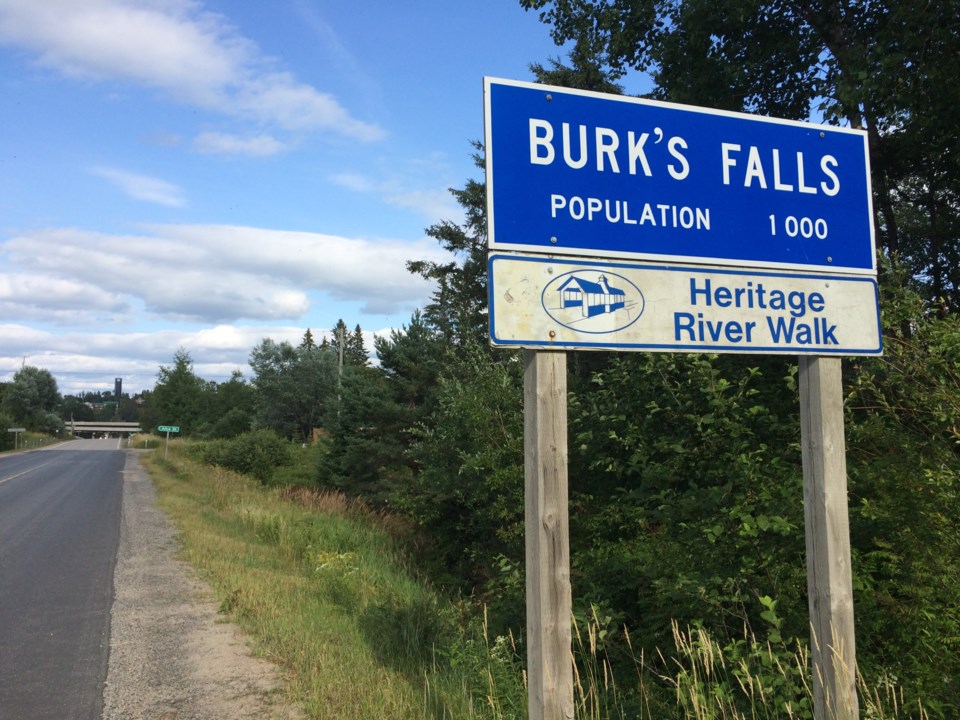Wendy Whitwell, the chair of Almaguin Community Economic Development (ACED) in the Almaguin Highlands is clarifying statements made around the table at the organization's recent meeting.
The Jan. 23 meeting in part examined why the Village of Burk’s Falls has given notice it plans to leave the economic organization this December.
At that meeting, Burk's Falls Mayor Chris Hope gave several reasons for the municipality’s decision to withdraw from ACED including a need to revisit the membership formula the Highlands communities pay to be part of ACED.
See: Burk's Falls mayor says Almaguin economic development membership formula not working
Hope said some municipalities, like Burk’s Falls, pay a full share to be part of ACED and others don’t.
Burk’s Falls pays about $20,000 annually to ACED and Hope says while it may not seem like a lot of money, it is a significant amount when a community has major pressure on infrastructure spending as the village now faces.
Hope also believed the existing members are subsidizing the non-members, like Powassan, Magnetawan and Kearney, because they benefit indirectly from ACED’s promotions of the Highlands.
Although ACED receives membership funds from the surrounding communities, the lion’s share of the funding comes from FedNor through its Community Investment Initiative for Northern Ontario (CNNNO).
In October 2023, FedNor announced $400,000 for ACED which was expected to see it through the end of 2026.
Whitwell, who is a councillor with Armour Township, said the ACED board had to consider a time when the CNNNO funding may end.
She said it would want the economic services to continue and with that in mind, the board debated how to generate more revenue.
Whitwell said what was introduced in January 2024 was a fee for service for Almaguin businesses whose municipalities are not part of ACED but ask for ACED’s help with things like promotions or applying for grants.
“And it’s the same for municipalities who are not members of ACED,” Whitwell said.
“These municipalities can buy services from ACED. Yes, we provide services across Almaguin but municipalities who are not members pay. So, the member municipalities are not subsidizing the municipalities that are not members.”
As for what each municipality pays, Whitwell says several scenarios were carefully examined and what was agreed upon was a two-part formula.
The consensus was each municipality would pay a $10,000 annual base rate except for very small communities like Ryerson which contribute $5,000.
Whitwell says the second half of the formula was based on a municipality’s assessment, population and number of households.
She agrees this means each community pays differing amounts with some paying more than others.
However, she says this is because they have higher assessment bases and have a greater ability to pay the membership fees.
Whitwell acknowledged that should the FedNor funding not be renewed beyond 2026 “the municipalities would see substantial increases” if they remain part of ACED.
But Whitwell says the fee for services is a good starting point to bring in extra revenue and there is time to lobby the feds for more funding either through existing or new programs that may be developed.
Whitwell adds ACED provides an invaluable service to the Almaguin communities.
It has a director of economic development, an economic development officer and a communications officer and Whitwell says “There is no way one municipality could afford that.”
Despite Whitwell’s explanation, Hope is standing by the position he presented at the January ACED board meeting.
In a Feb. 3 statement Hope said when “The largest municipalities choose not to participate, the remaining ACED members are paying to promote them as part of Almaguin.”
Hope added “That’s a fact.”
Hope did call the fee-for-service method for non-member communities an attractive option.
He said this approach may be the best option for ACED in the future “until a more comprehensive arrangement can be worked out among all municipalities.”
Hope said in the meantime the current annual membership cost remains the status quo and it’s not an incentive for the larger municipalities that left ACED to come back to the organization.
On the ability to pay, Hope countered that formula by saying even this approach is becoming more expensive with costs rising and he adds this again puts infrastructure spending pressures on local government.
Hope believes ACED is a valuable tool but says it’s a split decision regarding how businesses benefit from the organization.
He’s heard accounts where businesses in Burk’s Falls say ACED helped them quite a bit and other stories where the organization was of no help.
Hope says the $20,000 Burk’s Falls pays to ACED each year doesn’t mean every business in his community gets represented equally.
He believes the challenge for ACED is to achieve an approach that provides value equally to every municipality in the Highlands.
Rocco Frangione is a Local Journalism Initiative reporter with Almaguin News. The Local Journalism Initiative is funded by the Government of Canada.
